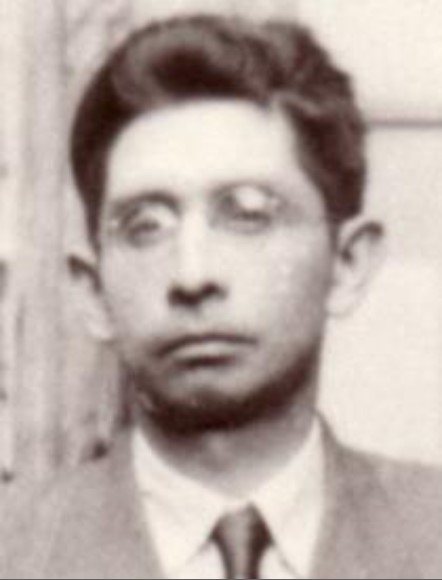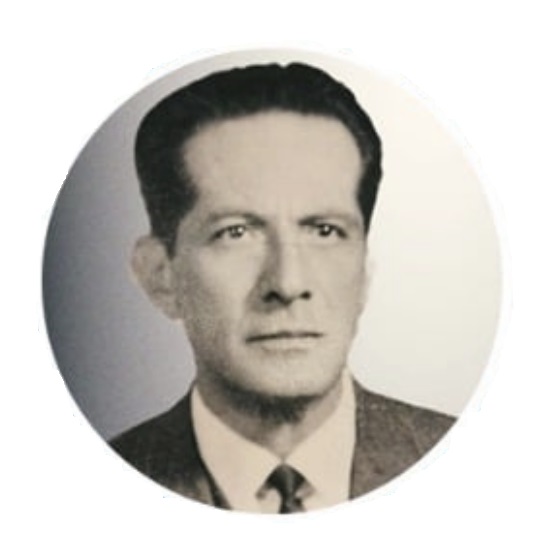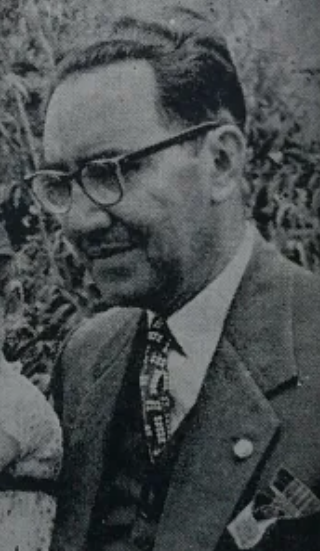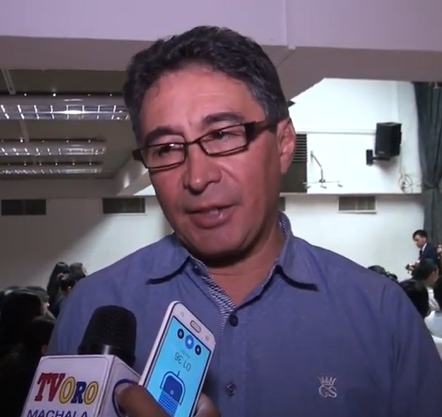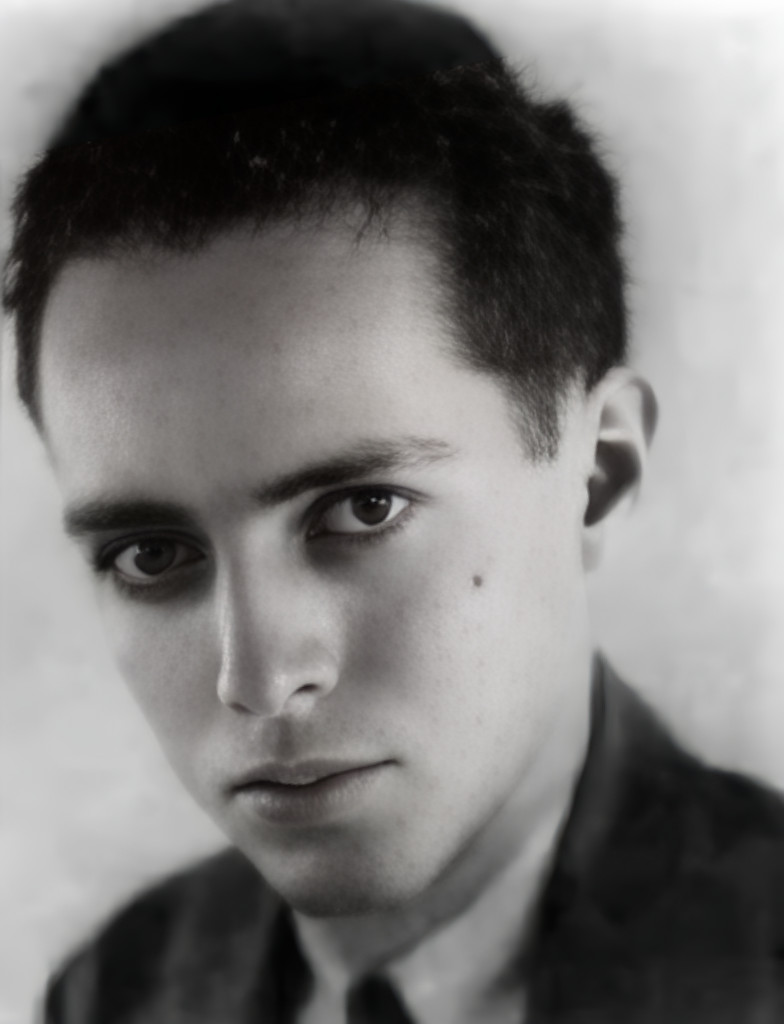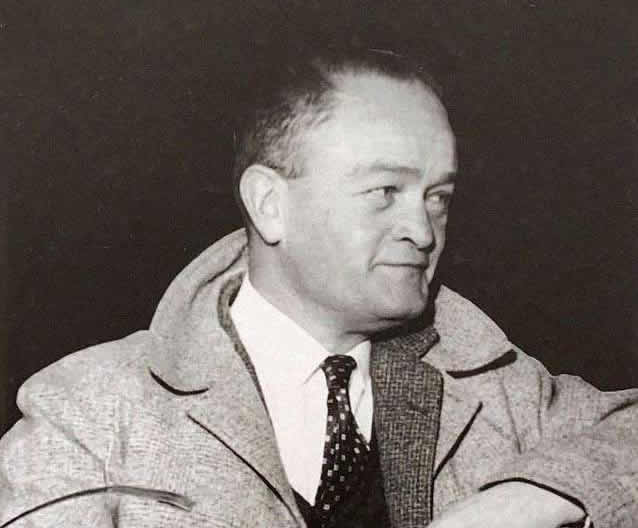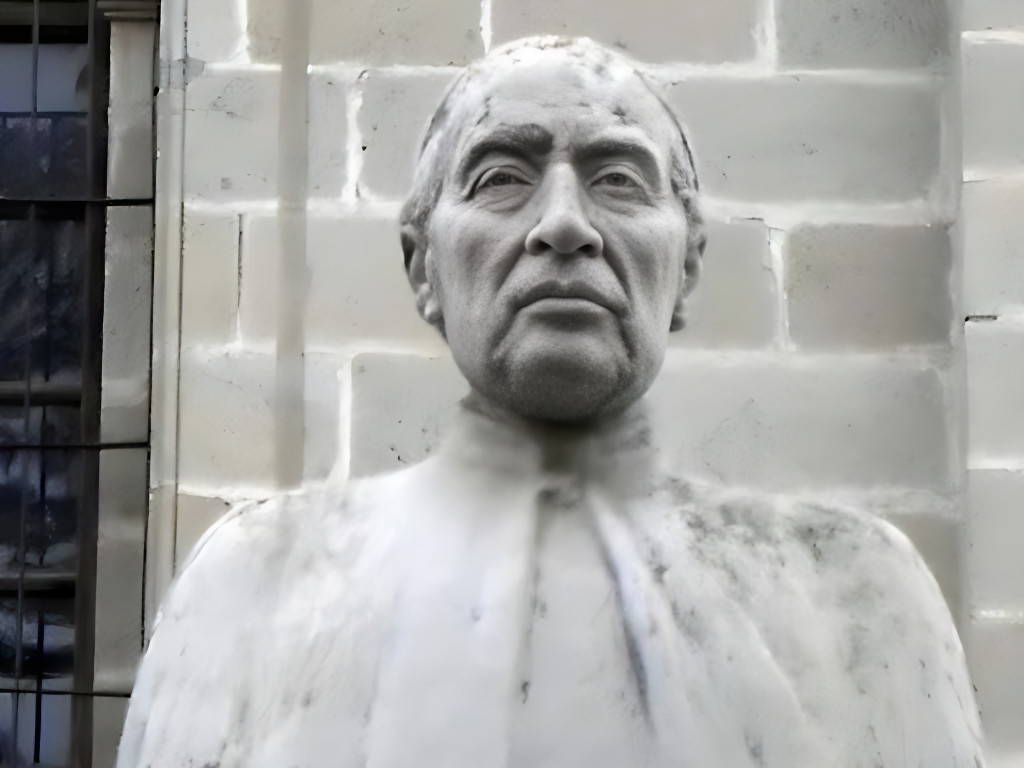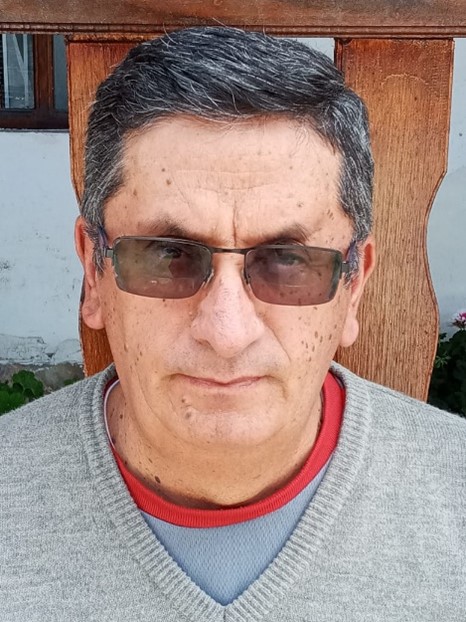Carlos Bazante Morejón (La Asunción, Bolívar, 1914 – date unknown) was an Ecuadorian poet, educator, and writer. He obtained his law degree in Quito and later taught at the “Sebastián de Benalcázar” high school and the University of Esmeraldas. Bazante’s literary work focused on poetry, publishing several collections, including Pecho Agreste (1953) and Yo era un Poeta Provinciano (1983). His writings, deeply rooted in the culture and social issues of Ecuador, appeared in notable publications such as Revista Altiplano and Letras del Ecuador. He is remembered for his contributions to Ecuadorian literature and education.
Continue reading “Carlos Bazante”Category: 20th Century Writers
Roberto Alfredo Arregui Chauvín
Roberto Alfredo Arregui Chauvín (Guaranda, October 22, 1915 – date unknown) was an Ecuadorian educator, poet, and lawyer. He served as rector and professor of Literature and Philosophy at the Pedro Carbo School in Guaranda for thirty years and was a founding member of the Bolívar chapter of the Casa de la Cultura Ecuatoriana. His poetry, mainly published in magazines, earned him several local awards, including the Trébol de Oro y Plata at the Riobamba Floral Games. Arregui also published a legal treatise, De las presunciones, which won the prestigious “Luis Felipe Borja” award, highlighting his contributions to both literature and law.
Continue reading “Roberto Alfredo Arregui Chauvín”Luis E. Falconí Hidalgo
Luis E. Falconí Hidalgo (Guaranda, July 14, 1910 – September 1, 1989) was an Ecuadorian writer and poet known for his contributions to indigenista literature and his dedication to promoting culture in Bolívar Province. Educated in Guaranda and Quito, Falconí published novels such as Así Nació el Día (1958), a work rooted in Ecuadorian landscapes and indigenous themes, and La Casa Encantada (1981), which explores local legends. He also wrote children’s poetry, winning national recognition in 1980. His work was supported by institutions like the Casa de la Cultura Ecuatoriana, cementing his legacy in Ecuadorian literature.
Continue reading “Luis E. Falconí Hidalgo”Augusto César Saltos
Augusto César Saltos Jarrín (Guaranda, December 18, 1899 – Guaranda, August 26, 1976) was a prominent Ecuadorian lawyer, writer, and cultural advocate. He served as a member of the Supreme Court of Justice and was deeply involved in social justice, advocating for the rights of workers and indigenous peoples. A co-founder of the Socialist Party in Ecuador, Saltos also participated in international peace conferences. He was a prolific author, known for his dramas, such as El Minero (1940) and Queriendo ser Grande (1943), which addressed social issues, and for works on Ecuadorian history and folklore, including El Cacique Huaranga (1969). Saltos led the Bolívar branch of the Casa de la Cultura Ecuatoriana from 1952 to 1970.
Continue reading “Augusto César Saltos”Piedad Larrea Borja
Piedad Larrea Borja (Quito, December 21, 1912 – Quito, June 2001) was an Ecuadorian writer, poet, philologist, and professor. As the first woman to join the Academia Ecuatoriana de la Lengua (Ecuadorian Academy of Language), where she served as secretary for many years, she played a significant role in Ecuadorian intellectual life. She earned a doctorate in Hispanic Philology from the University of Salamanca and later taught at the Universidad Central del Ecuador. Her literary works, which include essays, poetry, and linguistic studies, address themes of Ecuadorian identity, language, and social issues. In 1994, she was awarded the prestigious “Manuela Espejo” Prize by the Municipality of Quito, further cementing her legacy as a pioneering figure in Ecuadorian culture and education.
Continue reading “Piedad Larrea Borja”Ramiro Dávila Grijalva
Ramiro Dávila Grijalva (Quito, 1945) is an Ecuadorian poet and playwright known for his literary works that explore cultural and historical themes. He is the author of El Canto de las Sirenas (1982), a notable collection of poetry, and the play Tragedia de la Prisión y Muerte de Atahualpa (1988), which dramatizes the tragic fate of the Inca ruler Atahualpa. His other works include the play Leonor Yupangui, Esther de las Indias (2018), which is inspired by indigenous legends and history, as well as other plays like El Cóndor Enamorado and La Leyenda del Tío Lobo y el Sobrino Conejo. His poetry collections also include Historia de un Jilguero and Jugar Rayuela, Mi Voz y Otros Delirios (2007). Dávila Grijalva’s contributions have been recognized and preserved in various Ecuadorian libraries and cultural institutions.
Continue reading “Ramiro Dávila Grijalva”Iván Petroff Rojas
Iván Petroff Rojas (Cuenca, 1956) is an Ecuadorian writer, poet, and educator known for his contributions to contemporary literature. A prominent figure in the “new Cuenca literature” movement of the 1980s, he has published a diverse body of work that includes poetry, short stories, and essays. His writings often explore themes such as mythology, magic, and music, with a focus on the depth of human experience. Notable works like En las formas del amor y la guerra (1989) and Fuego cruzado (2020) showcase his ability to blend cultural and social commentary with narrative art. Petroff Rojas has also been influential in the cultural scene of Cuenca, serving as the president of the Casa de la Cultura Núcleo del Azuay and teaching at the University of Cuenca. His dedication to literature and culture has made him a significant voice in Ecuadorian arts and letters.
Continue reading “Iván Petroff Rojas”Jorge Ismael Gandú
Jorge Ismael Gandú, pseudonym of José Miguel Granda Granda (Celica, Loja Province of Ecuador, 1904 – Medellin, Colombia, Unknown) was an Ecuadorian poet and songwriter, renowned primarily for his significant contributions to the pasillo genre, a type of Latin American music. While his literary endeavors culminated in the publication of the poetry collection “Hontanar” in 1937, a work dedicated to his mother, wife, and homeland, it was his role as a lyricist for numerous pasillo songs that truly cemented his fame. Gandú’s ability to weave emotional depth into his lyrics resonated with composers and audiences alike, leading to collaborations with notable musicians such as Nicasio Safadi, who set Gandú’s poem “De corazón a corazón” to music.
Continue reading “Jorge Ismael Gandú”Gerardo Chiriboga
Gerardo Chiriboga (Riobamba, 1895 – Quito, 1966) was an Ecuadorian genealogist, journalist, and poet, known for his diverse contributions to the literary and historical fields. Among his literary works, “Minuto muerto, poemas” (1934) stands out as a compelling collection of poems. Additionally, he authored “Galápagos: El hombre, la tierra y el paisaje” (1948), a comprehensive exploration of the Galápagos Islands. This work is part of a significant body of literature that emerged post-World War II about the archipelago, following the departure of the American base. His literary efforts, including his recognized contributions to poetry in the anthology “Antología de poetas Riobambeños” (Anthology of Poets from Riobamba) (1963), further cement his place in Ecuador’s literary history.
Continue reading “Gerardo Chiriboga”Cristóbal Cevallos Larrea
Cristóbal Cevallos Larrea (1902-1978), holding a Doctorate in Law, was a multifaceted Ecuadorian intellectual, poet, writer, journalist, teacher, and jurist who had a significant influence on Ecuador’s cultural landscape. Cristóbal Cevallos Larrea demonstrated his dedication to cultural enrichment by leading the Chimborazo branch of the Casa de la Cultura in Riobamba, serving as a founding member in 1953 and later as its president in 1964, as well as heading the Ateneo del Chimborazo. In legal and educational spheres, Larrea held the positions of Minister and President of the National Court of Justice and taught Constitutional and Political Law and Civic Studies at the Colegio Nacional Maldonado in Riobamba for many years. Among his literary works, “La Gesta Amazónica” is renowned as an epic poem dedicated to the Amazon.
Continue reading “Cristóbal Cevallos Larrea”Gustavo Vallejo Larrea
Gustavo Vallejo Larrea (Riobamba, 1905 – Quito, 1961), a journalist, poet, legislator, and advocate for education, founded the “Campaña Nacional de Alfabetización” (National Literacy Campaign) in 1948. As president of the National Union of Journalists (UNP), he led this movement, significantly reducing illiteracy rates across Ecuador for 17 years. His dedication, fueled by the belief in education’s pivotal role in national development, propelled the campaign to isolated areas, urban suburbs, and even prisons. Additionally, Vallejo played a significant role in shaping the 1945 Ecuadorian Constitution, contributing to its clarity and the articulation of progressive principles. Vallejo’s legacy continues, with a school in Quito named in his honor and a bust in Riobamba.
Continue reading “Gustavo Vallejo Larrea”Juan Félix Proaño Castillo
Dr. Juan Félix Proaño Castillo (Riobamba, July 20, 1850 – Quito, July 30, 1938) was an Ecuadorian priest, theologian, writer, educator, and political figure, whose extensive contributions spanned the late 19th and early 20th centuries, significantly shaping Ecuador’s cultural and religious landscape. Celebrated for founding “El Templo del Sagrado Corazón de Jesús” in 1892, a newspaper that integrated religious teachings with cultural and literary discourse, Proaño stood firm against the liberal reforms of his era. This conviction led to his exile, during which he persisted in his scholarly and pastoral work. His historical drama “Quisquís” is particularly notable for its portrayal of Incaic civilization, underscoring his commitment to chronicling and preserving Ecuador’s rich historical and cultural heritage.
Continue reading “Juan Félix Proaño Castillo”Vicente Robalino
Dr. Vicente Robalino (Ibarra, 1960) is an Ecuadorian poet, essayist, and educator known for his extensive work in literature and academia. With advanced degrees from UNAM and PUCE, he has authored several books of poetry and essays, contributing significantly to Ecuador’s literary scene. As a professor at PUCE and a guest lecturer at Universidad Andina Simón Bolívar, Robalino has played a crucial role in shaping the appreciation and understanding of Latin American literature among students and peers.
Continue reading “Vicente Robalino”Carlos Altamirano Sánchez
Carlos Altamirano Sánchez (Guayaquil, November 15, 1926) is an Ecuadorian poet and journalist, recognized for addressing social issues through his works, including “Hijo Imperfecto” and “Lamento de un Soñador.” His contributions have earned him accolades such as the Gold Medal in the Borja Lavayen Poetry Contest and a significant role in founding the Union of Ecuadorian Journalists, highlighting his impact on Ecuador’s cultural and literary spheres.
Continue reading “Carlos Altamirano Sánchez”Enrique Terán
Enrique Terán Vaca (Quito, 1887 – 1941) was an influential Ecuadorian musician, writer, and political activist. He honed his musical skills at the Royal Academy of Music in London, which played a pivotal role in his artistic development. A key member of the Ecuadorian Socialist Party, Terán actively engaged in the political scene of early 20th-century Ecuador. His literary legacy, highlighted by his notable novel ‘El cojo Navarrete’, delves into the effects of the Liberal Revolution in Ecuador. Terán’s multifaceted talents profoundly impacted Ecuador’s cultural and political spheres.
Continue reading “Enrique Terán”
